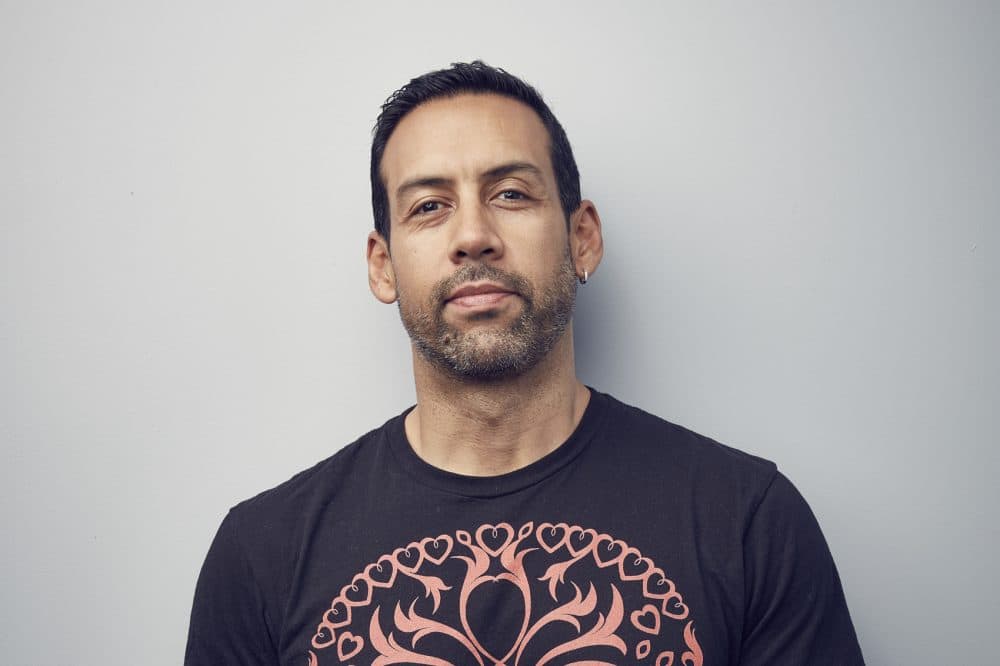Advertisement
Immigration At The Heart Of Drummer Antonio Sánchez's New Album 'Lines In The Sand'

Drummer Antonio Sánchez's new album reflects a longtime passion for people on the move — something he knows a great deal about.
Sánchez emigrated to the U.S. from his native Mexico City to study music at Boston's Berklee College of Music in 1994. He says he's since been welcomed with open arms — and accolades: The longtime member of the Pat Metheny Group composed the score for the Academy Award-winning film "Birdman," and his 2017 album "Bad Hombre" was nominated for a Grammy.
He has also become a U.S. citizen, and his new album "Lines In The Sand" is dedicated to fellow immigrants who didn't come to America to pursue a passion, but to flee in fear. It begins with a spoken-word collage of people being stopped by Immigration and Customs Enforcement.
"Most of these people were actually U.S. citizens, so it was pretty obvious to me that they were being stopped on the basis of racial profiling," Sánchez (@AntonioDrumsX) tells Here & Now's Robin Young of the opening track. "What I'm trying to do is for people to reflect just for a second on how hard some people have it."
Even though Sánchez considers himself lucky compared to many other immigrants, he says his decision to come to the U.S. was far from a simple one.
"It's easy compared to those people [being stopped by ICE], but I mean my immigration situation — as it is for most Mexicans — is pretty convoluted," he says. "I had to renew my visas every six months. Sometimes, if I was in the middle of a tour in the summer, I would have to go back straight to Mexico and renew my papers. I got harassed innumerable times whenever I would come into the country. Now that I have an American passport, all of that miraculously went away.
"So being a Mexican citizen and an American citizen, I'm just really aware of what's going on with both of our countries right now."
Interview Highlights
On the piece "Lines In The Sand (part 1 and part 2)" which features a poem by Paola Gonzalez and Karla Gutierrez that he discovered on YouTube
"One day, while I was writing the music for the album, I had this section that I really liked, but I always felt like it needed something else, something a little bit more dramatic to give it a push. And I started just looking online, basically, on YouTube, and one of the things I ran into was this poem by Karla and Paola, and I put it on top of that section that I was working on, and I got chills. It just spoke to me. It's very graphic how people are, you know, literally walking through the desert, hoping their prayers and water will last."
"Being a Mexican citizen and an American citizen, I'm just really aware of what's going on with both of our countries right now."
Antonio Sánchez
On perceptions of the amount of crime committed by immigrants in the U.S. illegally
"It's such a convoluted subject. Of course, if immigrants come into the country, legally or illegally, and they commit crimes, of course they should be deported. It's like for example whenever there's a terrorist attack, and Muslim people find out that the person who perpetrated the attack was Muslim, I'm sure they roll their eyes and they go like, 'Oh, no, please not again.' Every time I see a crime was committed by a Mexican that was illegally in the country, I also roll my eyes, I'm like, 'Dude, please,' you know ... it's just very obvious that certain things are going to perpetuate the stigma. But it's not the majority of the people."
On he and his wife, Croatian-American singer Thana Alexa, each feeling torn between two countries, and the song "Home" they perform together on the album
"I mean it's a complicated existence, because I don't feel 100 percent American, of course. I do feel 100 percent Mexican. But I've been away for more than half of my life. And for Thana, it's the same thing. She doesn't feel 100 percent American, she doesn't feel 100 percent Croatian, and you kind of try to make home wherever it is that you are at that moment. And we travel so much, that also ... makes it even harder to feel grounded. Luckily, the music, the art that happens in New York and all of her friends, they make us feel that ground that we need sometimes."
Emiko Tamagawa produced this interview and edited it for broadcast with Kathleen McKenna. Jack Mitchell adapted it for the web.
This segment aired on February 12, 2019.
